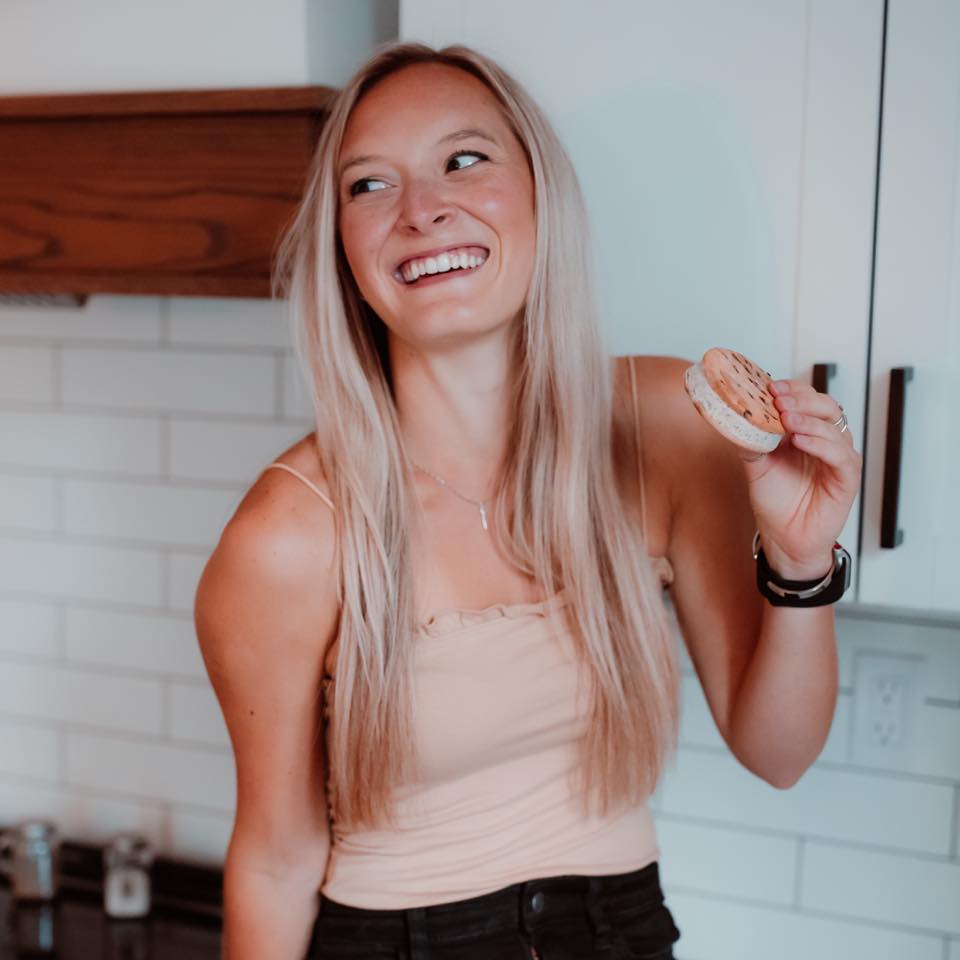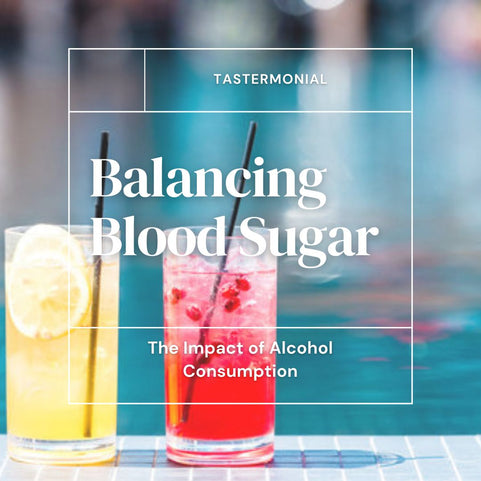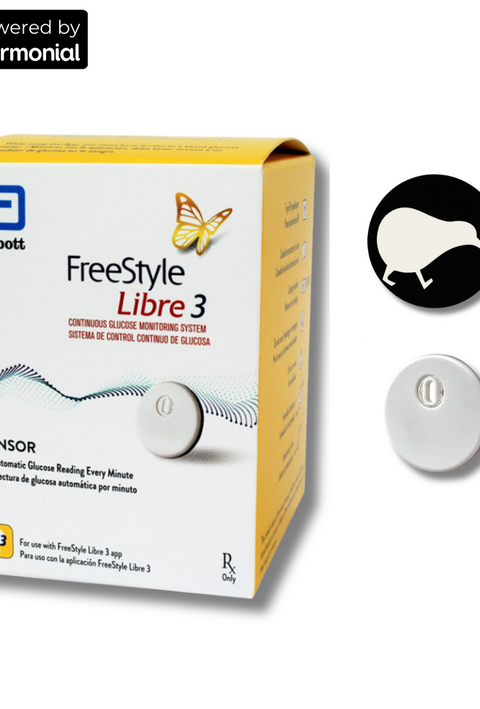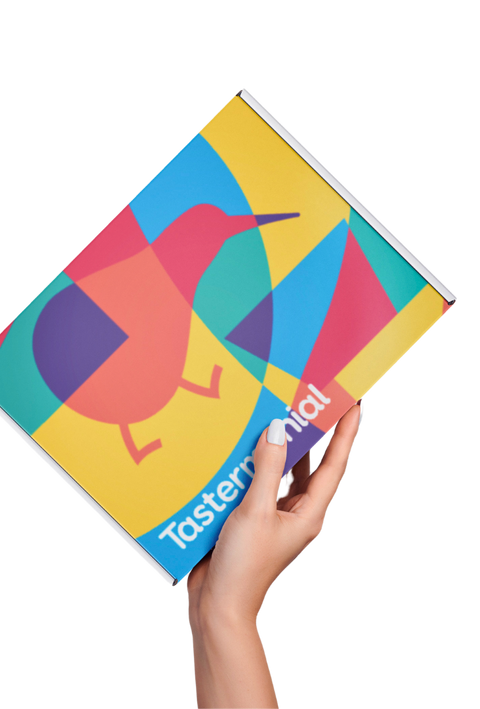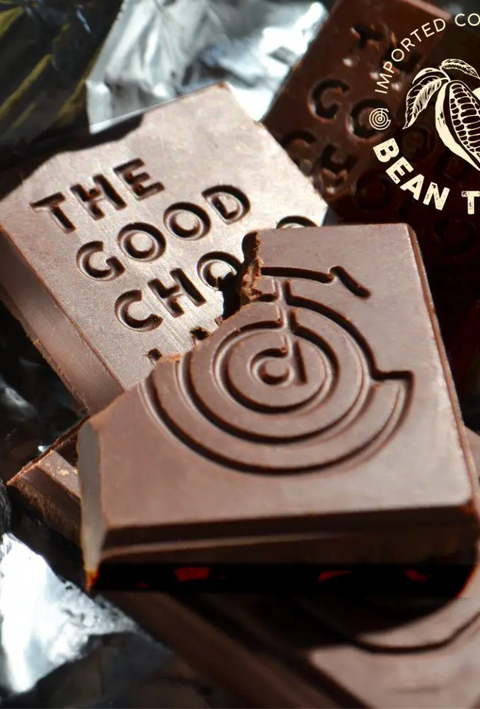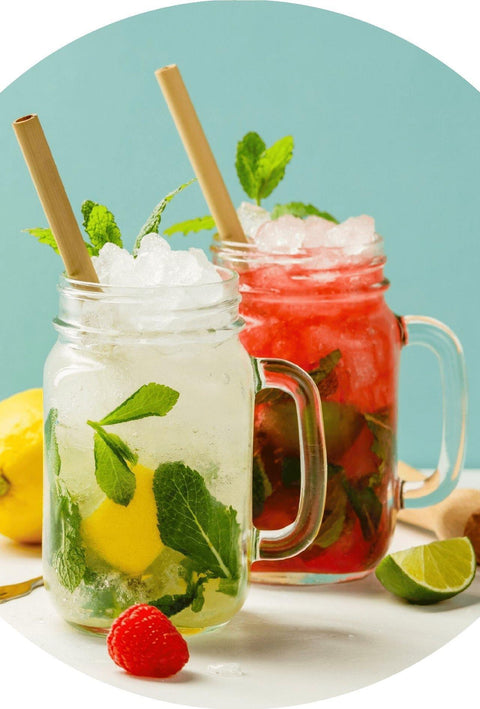Today, we interview Baylee Reller who is a passionate and dedicated registered dietitian who specializes in helping clients achieve their health goals through personalized nutrition plans. With a focus on fat-loss and blood sugar monitoring, Baylee works one-on-one with her clients to develop sustainable and practical strategies that fit their unique lifestyles. Her holistic approach to nutrition takes into account each client's individual needs, preferences, and medical history to create tailored meal plans and lifestyle recommendations that lead to long-term success. With Baylee's guidance and support, clients can improve their overall health and well-being, while feeling empowered and confident in their ability to make lasting changes.
Today we are here with Bailey Reller. Can you tell us what you do and more about yourself overall?
I am Bailey Reller. I am a fat loss dietician. I went to Missouri State for my undergrad program. I have my bachelor's in dietetics from there. And then from there I went to the University of Iowa and that is where I received my Master's in clinical nutrition. And I also did a two year internship there. So spent a lot of time in the hospital. And then kind of after that while I was going through the internship, I was really trying to dive into what I wanted to do with this degree because if you don't know as a dietician, like there are so many different things you can do and I feel like a lot of people think dietitians were in the hospital a lot, but we are in so many other places. So there's a lot of options I had and I just kept feeling drawn towards private practice. So I was like, you know what, I'm just gonna go for it. Everyone thought I was crazy because just getting out of school, starting a business, it seems insane and it has been insane but in a really good way and it's been really exciting. So that's kind of what I do right now. Private practice dietician.
What does healthy mean to you?
Yes, it's such a good question and I feel like it's kind of hard to answer it really concisely almost. But I guess overall it's a feeling good physically, but also mentally I feel like there's a lot that goes into health. A lot of times we just think of like maybe body size is what people often refer to as if you're this size, you're healthy. That's not really the case! I feel like maybe some people may think that about me too. Like you have to be a certain size to be healthy. I definitely do not think that even as a fat loss dietician, I think people can find health at all different sizes. Being healthy is going to be more than that, it's going to be how you feel. I always say , do you feel good? I like it and I hate that saying all at the same time because it seems super vague.
But at the same time, every woman I work with, like within a month, they're like, I just feel really good. I'm like, yes, you don't realize like how bad you feel until you get to feel good again. That has to do with how you're showing up every day, your energy. Are you pooping daily? How's your skin look? What's your relationship to food, what's your relationship to your spouse, your kids, all these different things I think can really tie into health and especially looking at it from physical and also that mental aspect as well. What is in our mind, it truly matters so much more than what I think what people realize. So I would say feeling good mentally and physically.
I always kind of think about it this way too. A lot of us have gone through school, we've gone through taking tests and a lot of times people have upset stomachs when they go to take a test. I'm like, yeah, that's that mind gut connection going on right there. A lot of us experience it. So that's just a little thing that you could probably think back and like, oh yeah, when I'm stressed out, my bowel movements are a little different. It really does all connect. Even the way you talk to yourself, that's going to matter too because that's when your subconscious mind and how you think subconsciously that's what's gonna drive all your decisions every day.
What led you to this career?
Yes. So this actually was not my initial thought when I was going into college. I started off with physical therapy, went to athletic training and thought about teaching for a little bit that lasted about a month with that idea. Then after that I did health science for a little bit and then I found dietetics. And what eventually led me to there was I was 18 years old, I was taking eight different medications at the time, felt terrible. And you would think like if I have to take all these medications every day, like I should at least feel good every day, but I wasn't. I had met with a functional medicine practitioner and she figured out I had a dairy allergy that I had been living with for 18 years. So as soon as I cut dairy out, I adjusted my diet a lot.
My whole life changed. I don't take any of those medications anymore. I feel amazing. I have not been to the doctor except for well visits. So getting to see how much my body changed just from seeing how food affects me really drove me into this field of nutrition. Whenever I say that, like I don't ever think that every single person in the world needs to be dairy-free, but it really just goes to show how certain foods just affect our bodies differently. So I found that super interesting and dove into nutrition. Then while I was at Iowa try to figure out what I wanted to do, no one wanted to do private practice. I was like, okay, well now what do I do within my private practice? While we do learn a lot in school, I can't do every single thing, you gotta pick a niche.
That's where I came into the fat loss area. I know a lot of women especially who have dieted, who have tried to lose weight and it's very hard and it's very, it's very hard on the mind and a lot of times I see it being done and not a safe way in a way that you're starving yourself, you feel exhausted and then you go on this diet, it works for a little bit, you go off the diet because it wasn't realistic and then you're back at square one. So you start another diet and it's like I was seeing so many people on this continuous diet, after diet, after diet and that's no way to live life. So it's like, you know what, what if I teach these people how to lose fat, how to maintain that fat loss without having to really diet. You're just eating to feel good again. You're moving your body to feel good again.
The most sustainable long-term diet is something that you can stick with.
What would be a couple sustainable fat loss goals that you tell people when you're just starting to work with them?
Yeah, so I guess kind of thinking about three. Number one, I would say inches over the scale. So a lot of times we focus on the scale in pretty much every weight loss commercial. It's gonna be like lose 10 pounds in this many days. I don't care how many pounds you're gonna lose, I'd rather use lose inches because that number on the scale, that is basically your gravitational pull to the center of the earth. That's it. It can be a great data point, but where it becomes a problem is when that number on the scale is making or breaking your day. And that's not what I want for people. So then I would say focus on the inches, focus on how your pants fit, especially jeans. You can tell when your waist is getting smaller when you put your jeans on. So I think looking at inches over the scale, that is super helpful.
That's also gonna tell you, hey, you're losing fat now. And probably either maintaining muscle or building muscle. So that would be my number one tip there. Number two, including protein, fat and fiber at every meal. And kind of going along with that, like you have to eat, even if you're trying to lose fat, lose weight, you have to eat. If you are not eating enough, your metabolism, it's going to slow down because it wants to preserve the food you're eating. It's kind of going in that like starvation mode that we hear a lot. So you still need to eat even if you want to lose fat or lose weight. Then, number three I would say move more. Thats not just me saying go spend an hour at the gym every day. No, that's just saying stop sitting on your butt for eight hours while you're working all day long.
See if you can just stand up, do 10 squats, do some pushups, do some calf freezes and whatever it needs to be. Even right now, I'm standing doing this interview. So just different ways so you're not sitting in the same position all day moving more. Well I guess I'll throw in a fourth one because this one is super important too. You need sleep. Yes, a full seven to nine hours. Definitely get your sleep and that is gonna be so important. It's not just, oh, I'll sleep for four hours and then go work out and first thing in the morning. No, I would rather you sleep and then skip that workout at 5:00 AM.
How is blood sugar related to weight loss and gain?
Yes, so I would say common misconception here is looking at your blood sugar. They think the blood sugar roller coaster only has to do with diabetes. That's not true. Really, everyone should be learning how to manage their blood sugar. And you will see the difference and probably on the first day you do it, to be honest, because when you are on this blood sugar roller coaster. That means like you're eating carbs, this is any type of carbs, this is banana, this is bread, this is a piece of candy, it's all gonna break down into carbs. Carbs are not bad! That's not what I'm saying here. But when you eat carbs, you're going to spike or blood sugar, especially if you're eating them by yourself. So when you have that spike, you gotta have that insulin come in. Now you're gonna have a drop in blood sugar.
When we have that drop and it drops really low because we have that super high spike, well now that's when your brain is going to be like, hold on, we're really low on blood sugar. We need energy, we need it now. Suddenly have those sugar cravings because our brain knows that's gonna get us quick energy. So that's kinda like that blood sugar rollercoaster that I see a lot of people dealing with all day. That looks like I'm hungry all day, can't seem to get full. I'm cranky, I'm moody. I have crashes throughout the day, kinda have high and lows and energy. That's what that blood sugar roller coaster looks like. So when you're on that all day, you're probably not gonna have a lot of energy to move. You're not gonna be in a great mood to show up and do the things.
Then also insulin in itself, it's an anabolic hormone, which means it's the building hormone. It stores fat. It's not bad. We need insulin, we need this process to work. But if we have so much flooding into our bloodstream all the time, then that's when it becomes like that fat storing. We do need the glucose for energy, our body's going to use that. Whatever's leftover, we have the insulin being released, it's gonna get stored into your muscle and liver. And then that's kind of like your short term storage. There's only a certain amount that can be stored there. So once those are filled, well then it's gonna go into your fat cells and your fat cells. That's unlimited storage. You can keep on storing that extra sugar in those fat cells and that's when that weight gain, fat gain occurs. So blood sugar is really, really tied in with weight.
I have a ton of people where they're like, I eat really healthy, can't lose the weight, I don't know what's going on. So then we start working together, and we dive into what exactly they're eating. I'm like, okay, just eating a bunch of fruit for a meal, you need something else. We gotta throw some protein in there, we gotta throw some fat. I'm even thinking of like acai bowls, a lot of times it's filled with a ton of fruit. Fruit is great. We love fruit, but let's also get some protein and fat in there to make it satiating. Make it full. Help us get off that blood sugar roller coaster.
It's going to be more than about the food. It's going to be your movement throughout the day. It's going to be your stress, it's going to be your sleep. All these different things are going to affect your blood sugar.
What do you think your biggest challenge is when you're helping patients or talking with clients?
I would say the biggest challenge, I think it'd be patience. It is so hard because a lot of them are coming to me like the last resort, like nothing else has worked, now I'm going to invest in you. Now I'm ready to do these types of changes. But they've dieted a lot in their past and they've seen like five pounds of weight loss super quickly over and over again. But then they also gained it back over and over again. So it's really hard to help them get out of the mindset where you're probably not gonna lose five pounds every single week. In fact that might be a little too fast for many people. So really encouraging them to stick with it. We're going to get there, we're doing this for life. This is not like a 75 day challenge. It's not a 30 day challenge. I'm setting you up for life, it's going to take time, especially if you've been dieting for years. Your body just needs to feel safe right now. So, we have to just support your body, support your metabolism and then we can focus more on honing in on that, more than weight loss.
What is your favorite food?
Favorite... I love, love waffles. I'm such a breakfast food person.
What is your favorite nutrition hack or tip?
My favorite hack, well I'm also a smoothie person, so I guess a favorite hack I have is to throw vegetables in your smoothie. I'm not a big fan of vegetables. Like I eat them but I don't like them raw. So usually for my smoothies I'll eat I will throw in spinach, frozen cauliflower, zucchini, sometimes carrots. Those different types of vegetables and you can't even taste 'em. So boosting your vegetable intake, getting your fiber in, getting your antioxidants in and yeah.
What nutrition trend do you want to end?
I would say any quick fix diet. I mean there, there are so many diets out there like I can't even keep up with all of them. Anytime everyone asks me about a diet, even if I don't know about the diet, just like, do you wanna do this when you're 80 years old? You're like, well no that's it sounds terrible. I just need a jumpstart. I'm like, okay, well then why even start there? Why don't we just learn how your body works? Learn how these different foods are gonna affect you. Learn what we can just do now and forever rather than doing all these jumpstarts.
And weight loss challenges that are based on the scale, they're really on my nerves this year. It's causing people to starve themselves. I'm like no, this is the intent behind it is good, but at the end of the day I'm like no, we should not be doing for a second, third place based on how much weight you can lose in a month or whatever the challenge is. So it's a terrible way to measure a success too. Like even as a weight loss fall dietitian, we talked about the scale, it's not gonna be an accurate depiction of losing fat because I assume people wanna lose fat rather than losing muscle too.
What draws you to Tastermonial?
I think it's going to be super cool to share this with my clients so that they can truly like see the data, see that what I'm telling you, I'm not just like pulling it out of thin air. It really does matter when I'm teaching. It really does, it really does help you with the fat loss is gonna help you with the energy and being able to show them the data and be like, okay, you had an energy crash. Well let's look, maybe that did help blood sugar crashes. So having that data to show them firsthand I think is going to be super helpful. And also to show them how different meals are going to affect their blood sugar too. Because yes, you can notice effects on how your blood sugar's doing without a CGM, but getting this I think will just provide additional data that will be helpful.
What do you hope to accomplish in 2023?
Yes, I would like all every month to be full for my one-on-one clients. I'm really excited to grow that business.
You can find Baylee Reller @Nucrewnutrition on Instagram/ Facebook. You can watch the full interview on YouTube @Tastermonial.

